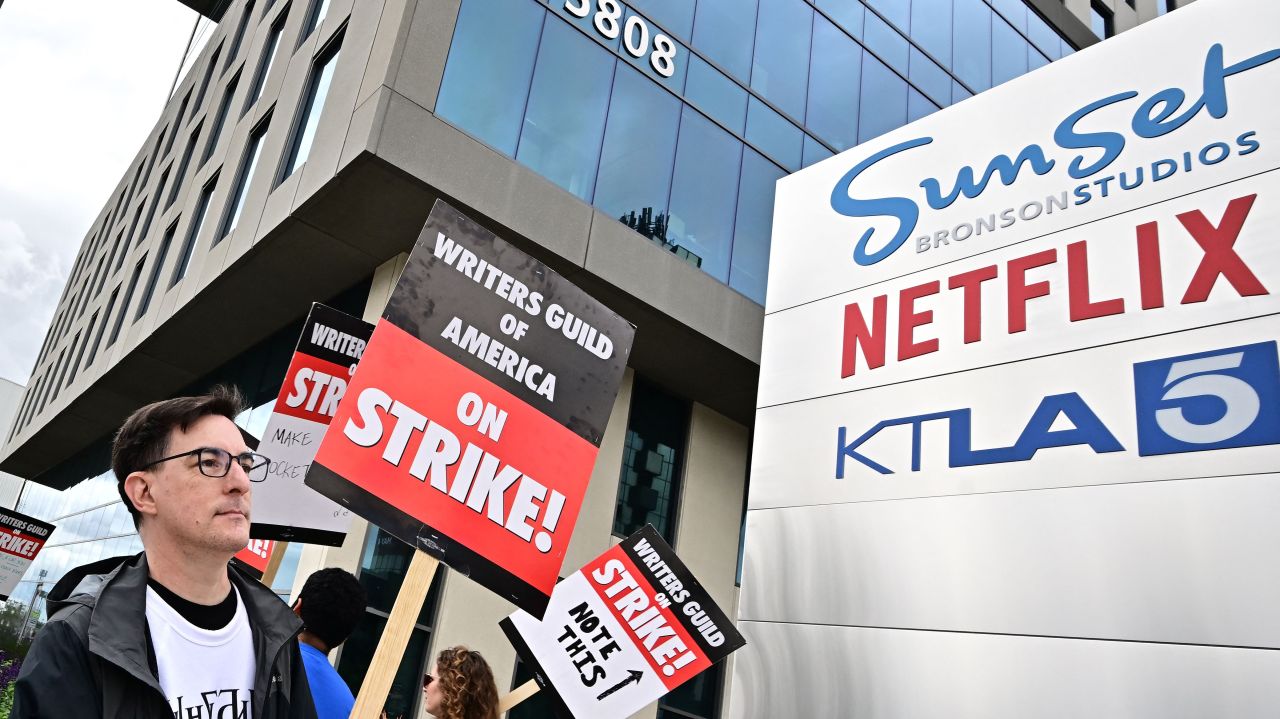
This post was originally published on this site
Businesses are fond of saying that shareholders are the owners of the company, suggesting that investors should have the last word on big corporate decisions.
A vote this week by Netflix shareholders highlights how bogus this is.
Owners of Netflix stock voted Thursday to reject fat, multimillion-dollar pay packages offered to Netflix’s co-CEOs and other top execs.
They did so at the urging of the Writers Guild of America, which is now picketing Netflix and other studios as contract talks drag on.
“While investors have long taken issue with Netflix’s executive pay, the compensation structure is more egregious against the backdrop of the strike,” WGA West president Meredith Stiehm wrote in a letter to shareholders.
She said that if Netflix has enough cash to shower an estimated $166 million on senior execs, it shouldn’t be struggling to pay the estimated $68 million writers are seeking in their new contract.
Netflix co-CEOs Ted Sarandos and Greg Peters are due to receive up to $40 million and $35 million, respectively, in 2023 compensation.
CFO Spencer Neumann is due to receive $14 million, chief legal officer David Hyman is slated for $11 million and chief communications officer Rachel Whetstone would pocket $6.5 million.
The median Netflix employee made $218,400 last year, according to a regulatory filing. That would make the ratio of CEO pay to median employee pay a hefty 234 to 1.
So what happens now?
Probably nothing.
The shareholder vote is non-binding, meaning that Netflix’s board is free to ignore it.
And that seems likely. The board already has unanimously voiced its support for the super-rich pay packages.
Which just makes you wonder what the point is of asking the “owners” of a company for their input if you’re just going to laugh it off.
To be sure, Netflix’s board is by no means alone in dismissing shareholder votes — it’s a common practice when shareholders don’t rubber stamp board decisions.
But it should make all investors wary of their clout as corporate owners.
They control things pretty much the same way a cat owner does.
Suggest a Correction






